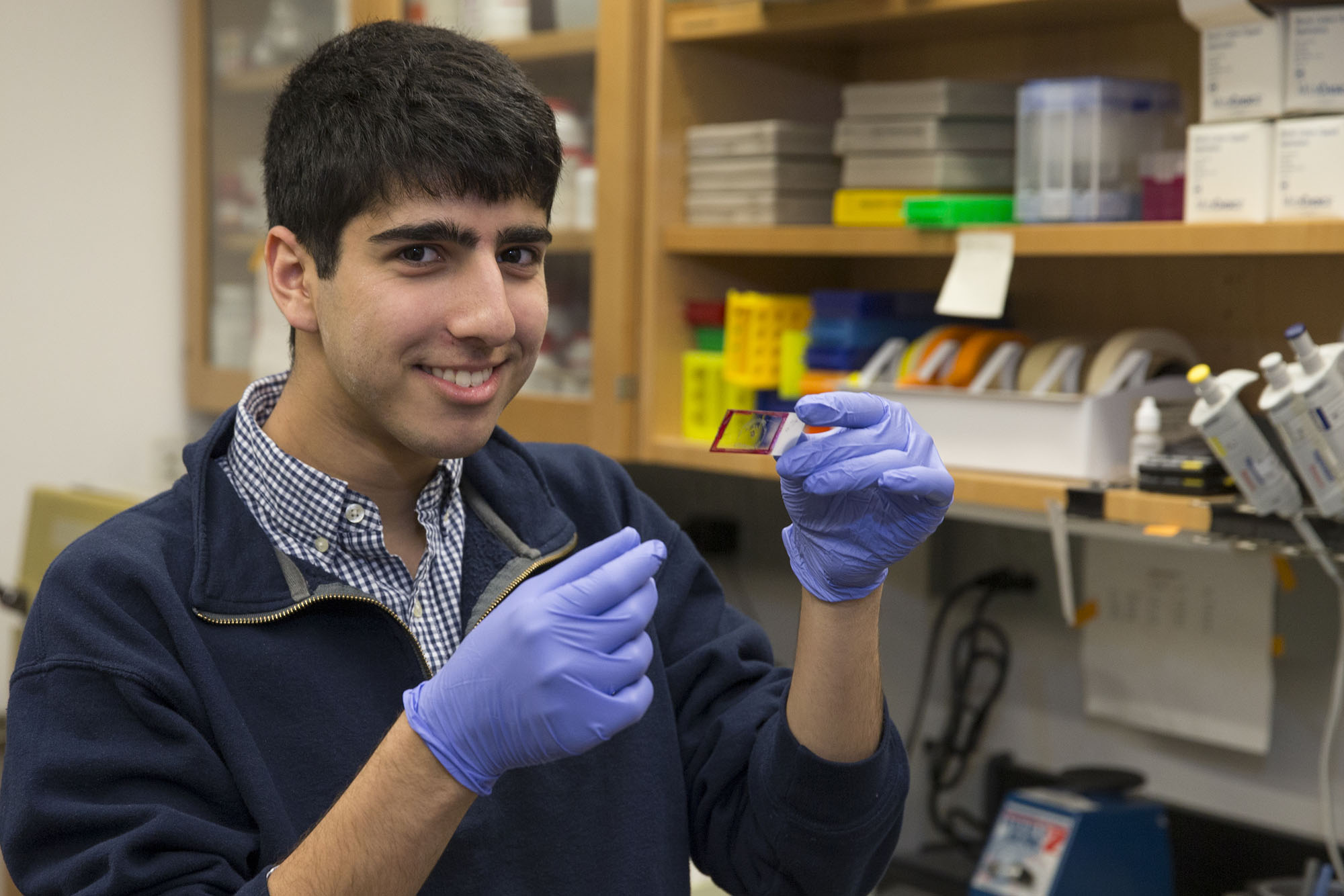Daniel Naveed Tavakol is pursuing his interest in regenerative medicine by conducting research into blood vessel growth in the diabetic eye.
Among this year’s recipients of U.Va.’s Harrison Undergraduate Research Awards, which provide up to $3,000 each for outstanding undergraduate research projects, the third-year biomedical engineering student is examining blood vessel growth in the mouse cornea to advance the understanding of diabetes.
“A lot of the work I’m doing and a lot of the people I’m working with are beyond what I would ever imagine during my undergraduate experience,” Tavakol said. “A lot of the research I’m doing will benefit me both in the short term and in the long term, and definitely will shape how I perceive my goals in the future.”
A Vienna native, Tavakol plans to apply for an M.D./Ph.D. program, with an eye on teaching and conducting research in biomedical engineering.
Currently, he is looking at blood vessel growth in the eyes of both healthy and diabetic mice. “We’re doing this because diabetes causes a lot of changes to the body, and one of those changes is deterioration of the networks of the eye,” Tavakol said. “Diabetic retinopathy is characterized by disruption and abnormalities to the blood vessels in the eye, eventually causing blindness. Right now, we’re looking at neovascularization, or how these blood vessels grow and change.”
The ultimate goal, he said, is to understand how the blood vessels are forming. “We know that there are specific support cells that help these blood vessels grow, but we don’t really know how the support cells work or how they are affected by the diabetic condition. Seeing how these blood vessels are changing over that period of time will eventually lead to a better understanding of diabetes, and also how treatments toward retinopathy can be advanced by stimulation to these blood vessels.”
Tavakol’s faculty adviser on the project, Associate Professor Shayn Peirce-Cottler in the Department of Biomedical Engineering, said he’s in the lab all the time – and always wearing a smile and a U.Va. T-shirt.
“He never gets discouraged – even when he has to deal with the usual frustrations that present themselves when one works in a research environment,” Peirce-Cottler said. “Naveed is not afraid to work hard, and he tackles challenges with a level of ‘grit’ that is unique for a student at his level.”
Media Contact
Article Information
September 4, 2015
/content/uva-biomedical-engineering-student-peers-deeply-eyes-mice

